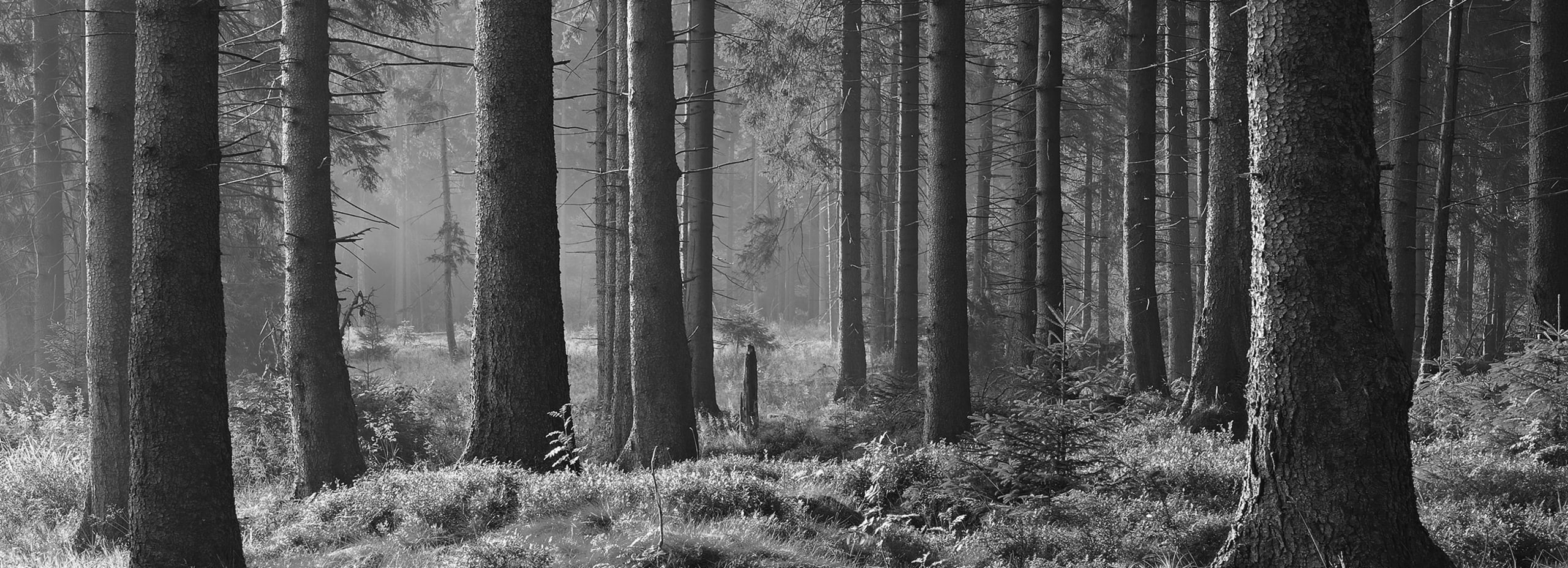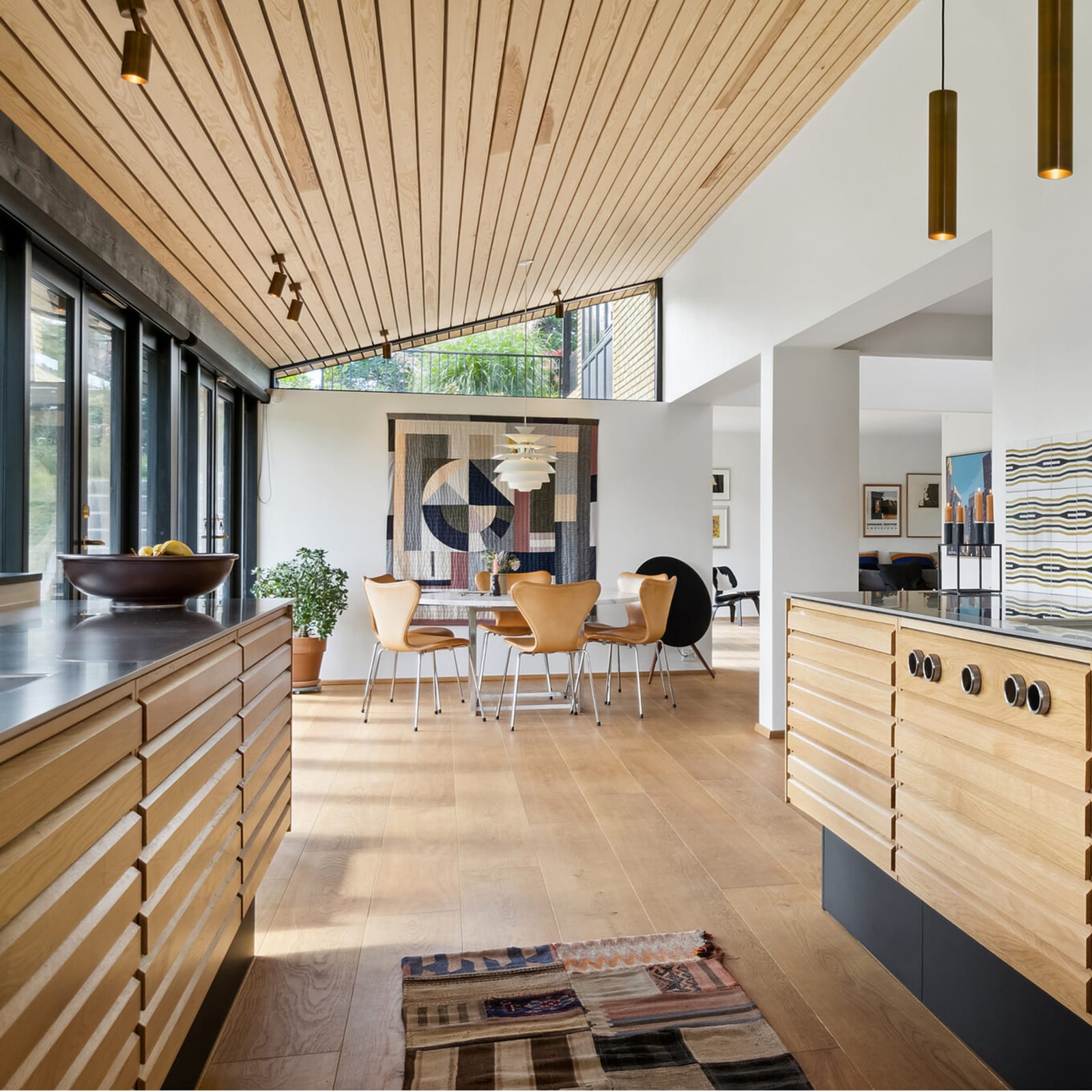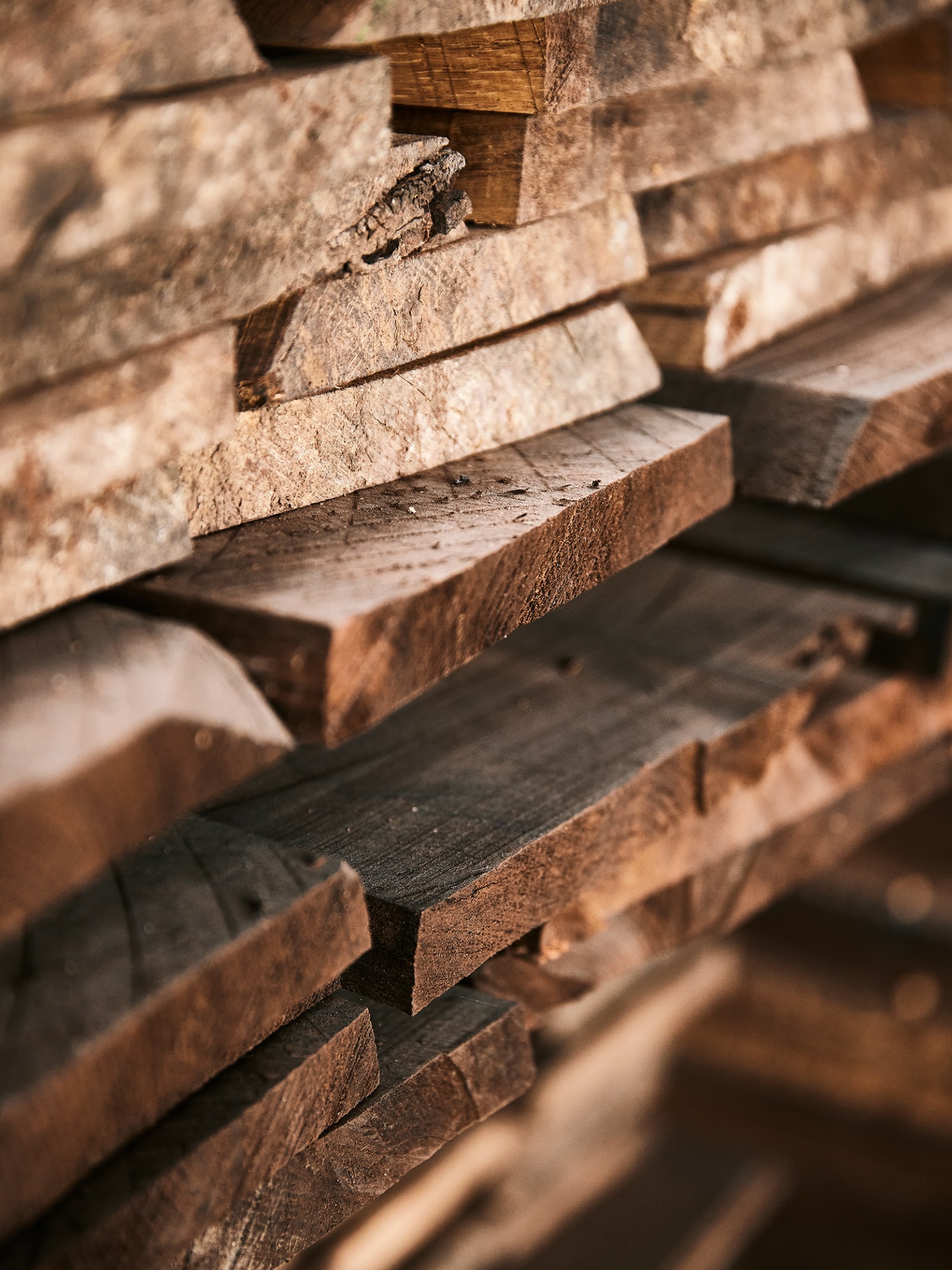An error occured
Try again later
No search results
No search results
Sustainability

Quality is the best form of sustainability
In 1968, when Arne Munch sat down at his drawing board in his basement in Kongens Lyngby and designed the original uno form Classic kitchen, he added his name to a proud Danish tradition in which craftsmanship, design and function come together.
This is a tradition created by iconic Danish architects and designers, such as Arne Jacobsen, Hans J. Wegner, Poul Kjærholm and Finn Juhl, when they came up with their classic designs over a number of years. An era that is now called the golden age of Danish design.
Despite their differences in appearance, these design classics have something in common: They are timeless, quality pieces of furniture, which thanks to their style, craftsmanship and function have been used for decades – and loved by multiple generations. Many people have an heirloom that has only become more beautiful and treasured after many years of use.
It was with this knowledge in mind, and with a vision of designing a kitchen that was more of a piece of furniture than the traditional kitchens of the time, that Arne Munch developed Classic by uno form. With its minimalist and functional design, Classic by uno form was groundbreaking when it first appeared on the market.
Today, it is a classic that lasts for generations, precisely because it builds on the philosophy from the production of Danish quality furniture, just like uno form’s subsequent kitchens.
At uno form, we believe this is the best way we can contribute to saving resources and ensuring a planet in balance for future generations. There will always be environmental costs associated with replacing a kitchen. But you can minimise these by buying a kitchen that you will have no desire or reason to change.
uno form experiences this when we are contacted by former customers or people who have just bought a house. They want to show us their uno form kitchens that have been in use for up to 50 years and which have aged with a grace that only makes them even more attractive to the owners.
So when we talk about sustainability at uno form, we instinctively focus on using sustainable resources, optimising production and reducing our climate impact. But above all, we aim to design kitchens that buyers will enjoy using for decades and that new generations of homeowners will be happy to keep. We call it long-term sustainability.
You don’t just throw out a design classic
Peter and Marie-Louise have re-established the original architectural style of their single family house from 1971, and updated the bespoke uno form kitchen to highlight the period architectural features.

Wood is the world’s most environmentally friendly raw material
A uno form kitchen is predominantly made of wood. This undoubtedly gives the most elegant styles and yields the best quality, with the bonus that wood is carbon neutral. One of the reasons for this is the fact that wood is a renewable resource, grown using the air’s CO2 and the sun’s rays. Wood takes CO2 from the air and stores it, plus harvesting and processing wood require less energy than for other raw materials. In fact, wood from sustainable forests is the world’s most environmentally and climate-friendly raw material.
uno form only uses wood from sustainable forestry, primarily from Europe, which is subject to the EU Timber Regulation, and a large proportion of the wood is certified. The certifications guarantee that the wood comes from sustainable forestry where no more wood is felled than the forest can reproduce, that animal and plant life is protected and that the employees work in decent conditions.
We hand-sort and select the finest veneer quality from the best areas in Europe. We find the light oak veneer in the limestone-rich soils of mountainous areas of southern Germany and France, where it has been allowed to grow slowly. For over 20 years, we have bought solid wood from a family-owned sawmill in Germany that knows our uncompromising approach to quality.
For many years, we have been ambassadors for the wood industry’s joint information project træ.dk, which works to spread awareness of the benefits of using wood and to promote sustainable production with wood.



Sustainability strategy and sustainable development goals
Sustainable production also means thinking about logistics, chemistry, human rights and anti-corruption. That is why we have drawn up a sustainability strategy and signed the UN Global Compact – a strategic initiative for companies committed to making the world a better place for plants, animals and people.
This means, for example, that all uno form’s suppliers must sign a code of conduct describing the requirements they must satisfy when it comes to social, ethical and environmental matters.
We work purposefully with the following UN Sustainable Development Goals:
- Innovations for a sustainable lifestyle: We develop products that contribute to more sustainable kitchen choices and offer white goods that contribute to reducing the customer’s climate footprint. UN Sustainable Development Goals 8 and 12.
- Circular material flows: We have an ambitious objective to increase the proportion of sustainable products and materials in order to ensure more circular material flows. UN Sustainable Development Goals 8, 12 and 15.
- Reduced climate impact: We have an ambitious goal to reduce CO2 emissions in our value chain so that we can contribute to preventing global warming of more than 1.5 degrees in accordance with the Paris Agreement. UN Sustainable Development Goal 13
- Promoting a sustainable culture: Focus on strengthening our knowledge and competencies within sustainability. UN Sustainable Development Goals 8, 12 and 17.
You can downloade Nobia's sustainability report here.
Danish Indoor Climate Labelling
As much as uno form strives to make the wider world a better place, we also make a concentrated effort to make small worlds better – the ones inside our homes. uno form is affiliated with Danish Indoor Climate Labelling, which is a voluntary labelling scheme that sets requirements for products in their use phase and covers the products’ impact on the indoor air quality. This means that when you buy a kitchen from uno form, you can be sure that all materials have been tested for degassing of chemical substances and odour emission, and that they will not impair the indoor climate or affect our health and well-being.

